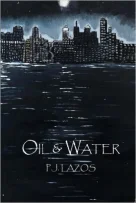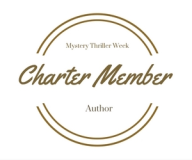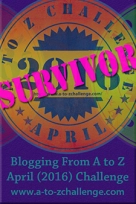También La Lluvia (Even the Rain) (2000), directed by Icíar Bollaín, tells the story of a small film crew making a movie about Christopher Columbus’ landing in the New World and the effect Spain’s arrival had on the indigenous Indian population. The movie crew travels to the Andes Mountains in Bolivia where they find the extras needed to shoot the movie. Never mind that these Indians are mountain dwellers and Columbus’s Indians were coastal dwellers, the producers say — Columbus landed in what is now the Bahamas — since no one will know the difference; they budget is tight and the extras will work for $2/day. The film brilliantly juxtaposes the colonialism of imperial Spain in 1511 with the privatization of Bolivia’s water in the year 2000.
At the time of the crews’ arrival, the locals were enmeshed in a water war over the privatization of the Cochabamba water utilities, known as the Cochabamba Water War of 2000. Bolivia had been under military rule for two decades until 1982 when it transitioned to a democratic government. However, the country remains very poor until this day and when the World Bank stepped in with the offer of a loan in the late 1990s, the government of Bolivia agreed to privatize their water by selling Bolivia’s water rights to the multinational Bechtel Corporation to pay back the loan.
However, the natives, who had hand-dug wells to provide water for their communities, had other plans. When Bechtel padlocked the wells, denying the locals access to water while simultaneously raising the price on that water approximately 300%, things looked bleak for the Indians. As a subsistence population that had very few opportunities to earn money, this may as well have been a death sentence.
But never underestimate the power of a large group of people bent on positive social change. After three days of protests, the government of Bolivia rescinded the contract and the indigenous population was able to retrieve one of life’s basic necessities.
The movie proceeds on parallel tracks with the injustices of colonization by Columbus and his men in 1511 overlain with the injustices of an international corporation in 2000, one more concerned with taking control of The Commons to increase its own usurious profits than with the health and welfare of the people. In Columbus’s day, the indigenous peoples were forced into slavery to find gold to fund the Spanish Empire’s unquenchable thirst for lands, power, and global dominance or risk losing lives and limbs. In 2000, the indigenous peoples were being forced to pay for water resources at exorbitant prices — up to half a year’s salary just for access to water — resources that should be available to all in order to fund Bolivian debt, once again moving society forward on the backs of its poorest members.
The haunting soundtrack by Spanish composer Alberto Iglesias, who first gained notoriety for his musical scores written for the inimitable Pedro Almodóvar films — the pair have a 25-year history of collaboration — and later gained global acclaim with three different Academy Award nominations for his scores on The Constant Gardner (2005), The Kite Runner (2007), and Tinker Tailor Soldier Spy (2011), will assure that this movie doesn’t leave you any time soon.
También La Lluvia received three Goya Awards, one of which was for Iglesias’ musical score. Established in 1987, Goya Awards are much like the Academy Awards, honoring the best of Spanish film making each year.
For the movie, for the music, and for the reminder that some things, especially water, should not come with a price tag, watch También la Lluvia.
También La Lluvia is streaming on Netflix and also available (with commentary) on Youtube for free.












Sounds like a gorgeous film–and one that helps others reach a new level of understanding, too. We’ve been introducing the kids to more global issues–albeit some dated ones–by watching Michael Palin travel documentaries. Blondie especially is asking a lot of questions now about government and society needs, and it’s awesome. 🙂 xxxxxx
LikeLiked by 1 person
There’s violence in this one and a scene in the movie within the movie where they are going to burn the natives at the stake. Nobody really gets burned, but Not sure how much your kids watch. Also there’s very real violence at the protests and a kid gets hurt so could be hard for young minds to watch. I was always torn by how much to let them watch but guess it’s no worse than a Marvel movie. 😳
LikeLiked by 1 person
Thanks, that’s good to know!
LikeLiked by 1 person
😘
LikeLiked by 1 person
Thank you for the information, Pam. I just put this on my watch list!
LikeLiked by 2 people
You’ll enjoy it, Carol. Well, really it will make you mad, but you know what I mean.
LikeLiked by 1 person
Hi Pam – I’d love to see this … and must see if I can get Netflix (my connection is ‘maggoty’) … and we very probably had it during our film society season in 2010 – but that was when my mother was not at all well. I’ll definitely check it out … sounds amazing – thanks for letting us know – Hilary
LikeLiked by 1 person
you can try youtube if netflix doesn’t work, Hilary. ;0)
LikeLike
oh thanks … I must remember there’s another alternative … great jog across! Cheers Hilary
LikeLiked by 1 person
Haha!
LikeLiked by 1 person
I’ve put this movie on my to-be-watched list. Thanks, Pam.
LikeLiked by 2 people
Enjoy, Neil.
LikeLiked by 1 person
Wow, thanks Pam, I’ll have to see this.
LikeLiked by 1 person
You’ll enjoy it, Michele.
LikeLike
Pam, thanks for bringing this movie to our attention. I’ll check it out.
LikeLiked by 2 people
👍♥️
LikeLiked by 1 person
I think I’d rather like this.
LikeLiked by 1 person
🎁♥️
LikeLiked by 1 person